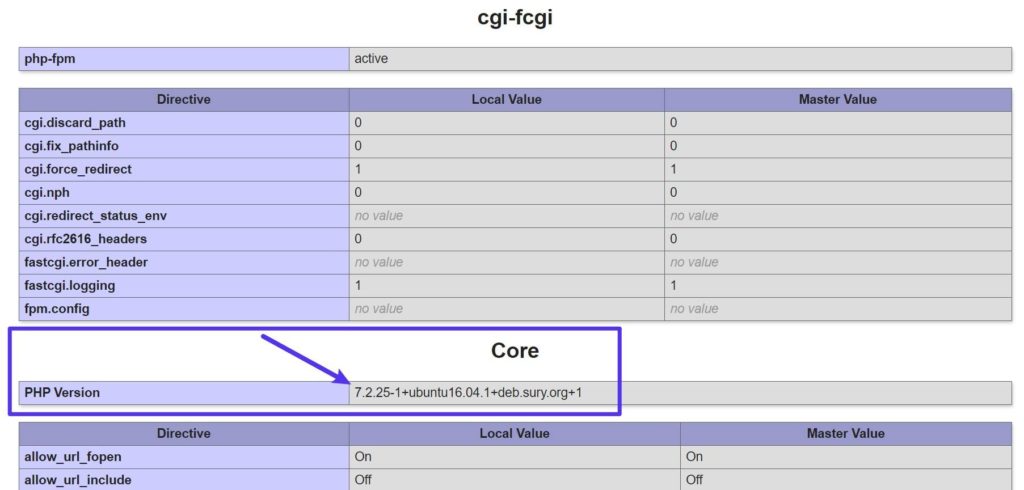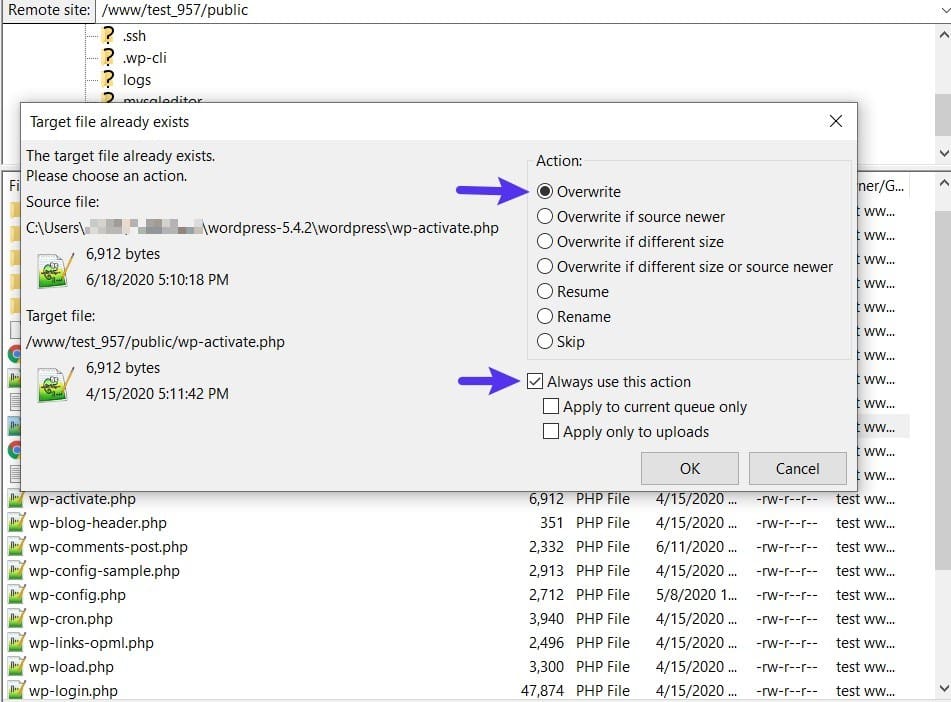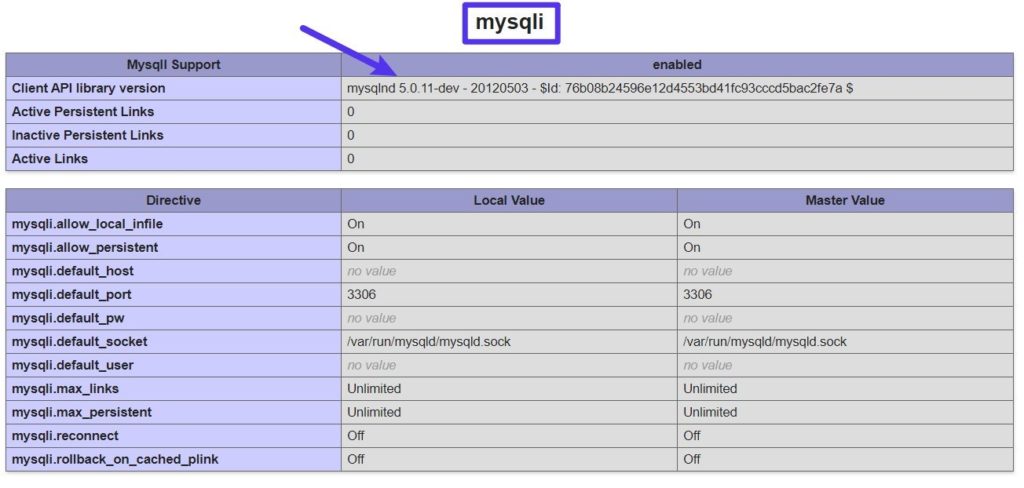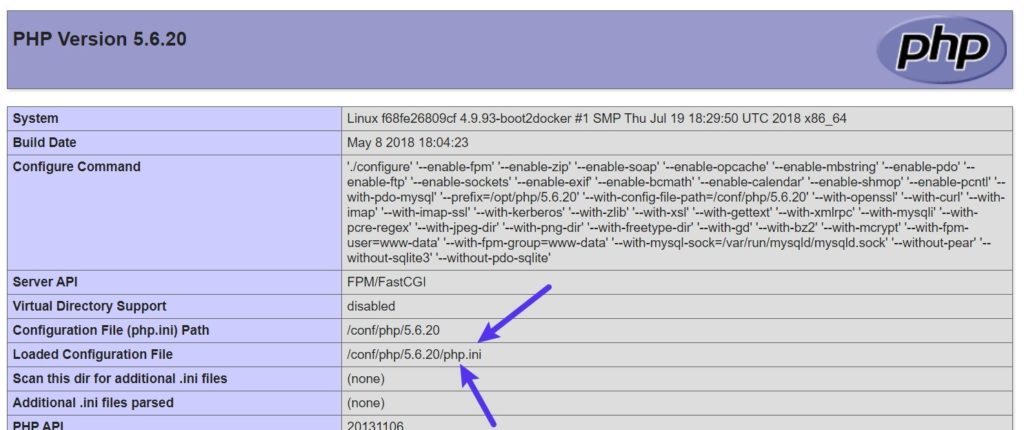WordPress Error: Missing the MySQL Extension

This article describes how to resolve the error “Your PHP installation appears to be missing the MySQL extension which is required by WordPress”.
What Causes the WordPress Missing MySQL Extension Error?
As we mentioned in the introduction, the error message “Your PHP installation appears to be missing the MySQL extension which is required by WordPress” steps from some issue with the code/scripts on your server.
Specifically, this error means that the PHP on your server doesn’t have the necessary extension to connect your WordPress site to its MySQL database.
There are two main reasons why this might be the case:
1. You’re Using an Outdated Version of WordPress with PHP 7+
If you’re using a very old version of WordPress with a modern version of PHP, you might encounter this error because PHP 7.0 deprecated the MySQL extension in favor of MySQLi. That is, PHP 7+ no longer includes the MySQL extension that WordPress is looking for.
Modern versions of WordPress will instead use the newer PDO_MySQL or MySQLi extensions. However, older versions of WordPress (below version 3.9) might cause this problem.
2. You’re Using PHP 5.6 or Lower but the Extension Is Missing or Improperly Configured
The other likely cause is that you are using PHP 5.6 (before the MySQL extension was deprecated), but the extension is either missing or improperly configured.
How to Fix “Your PHP installation appears to be missing the MySQL extension which is required by WordPress”
Now that you know what’s going on, let’s go over some tips for how to troubleshoot and fix the issue.
1. Check What Version of PHP You’re Using
The first step to diagnose this issue is to figure out which version of PHP your WordPress site’s server is running. The answer to this question will dictate the next steps that you take.
If your host is using cPanel, you can use the cPanel File Manager tool.
Once you’ve connected to your server, create a new file called phpinfo.php in the root directory of your WordPress site. This should be the same folder that contains your wp-config.php file.
Then, edit the file and add the following code snippet:
<?php
phpinfo();
?>
Once you save the file (and re-upload the saved version if needed), navigate to yoursite.com/phpinfo.php, making sure to replace yoursite.com with your actual domain name.
You should see a screen that displays a lot of different information about the PHP configuration on your server. Scroll down to the Core section and look for the PHP Version item. Pay attention to the numbers – you should see something like x.x.x. E.g. 7.2.25 or 5.6.8:

If your PHP version starts with a “7”, that usually means that you need to update the WordPress software. On the other hand, if you’re still using PHP 5.X, you might be missing the MySQL extension.
2. Update the Core WordPress Software
If your server is using PHP 7+, the most likely cause of this error is that you’re running an old version of WordPress. If you’re using WordPress version 3.9 or lower, that can trigger this error.
Therefore, the fix is to update your WordPress software, which will also come with lots of other features, security, and performance improvements.
To manually upgrade your WordPress version, first, make sure you have a backed up version of your site. Then, go to WordPress.org and download the most recent copy of the WordPress software.
Once you’ve downloaded it, extract the zip file to your computer. Then, open the folder that contains all of the WordPress files and delete the following items:
- The wp-config-sample.php file.
- The wp-config.php file (you might not see this file – just make sure to delete it if it’s there).
- The wp-content folder.
Once you’ve deleted those items, upload the remaining files/folders to your server via FTP. When prompted about duplicate files by your FTP client, tell it to overwrite all files:

Once the file uploads finish, your WordPress site should be running the most recent version and your issue should be fixed.
3. Check to See If the MySQL Extension Is Installed
If your server is still using PHP 5.6 or lower, your server might be missing the MySQL extension that WordPress requires.
To check if this is the case, go back to the phpinfo.php file that you uploaded to your server in Step #1.
Look for a section named either mysql or mysqli.
If the MySQL extension is installed, you should see a version number next to the Client API library version item:

If you can’t find this information, that means the MySQL extension is not installed. The best solution is usually to reach out to your host’s support staff and ask them to install it for you.
Note – again, we highly recommend not to use PHP versions below 8.0 because they no longer receive security updates and don’t perform as well as newer versions.
Unless you absolutely must continue using PHP 7.4 or lower, a much better solution is to upgrade your server to PHP 8+ instead of putting time into properly configuring an older version of PHP.
4. Make Sure PHP Extension Is Configured Properly
If you’re using PHP 5.6 or lower and the extension is installed, the issue might be that it’s not configured properly. Two common issues are:
- Uploading a php.ini file that’s intended for Windows servers when you’re using a Linux server
- Incorrect file paths.
You can find the location of your php.ini file in the phpinfo.php file that you created before:

First, we recommend backing up the existing file by downloading it to your local computer. Then, try deleting the php.ini file and see if that fixes the problem.
Summary
The “Your PHP installation appears to be missing the MySQL extension which is required by WordPress” message is a frustrating error to encounter because it seems so technical.
However, with the steps in this article, you should be able to diagnose and fix the issue.
Our recommended solution is to make sure you’re using the most recent versions of both PHP and WordPress.
If you use PHP 8+ and WordPress 5.0+, you should be able to automatically fix this error and get your site working again, while also benefiting from all of the other performance, security, and feature enhancements that come from updating.